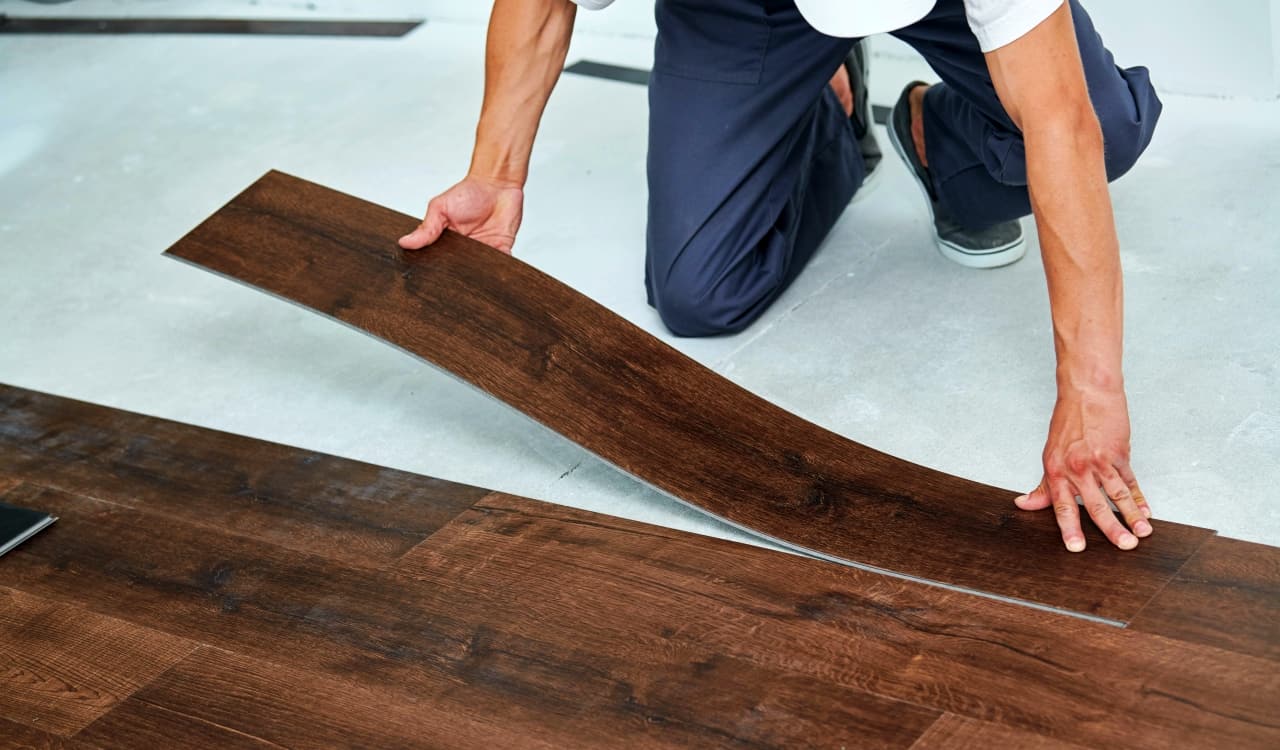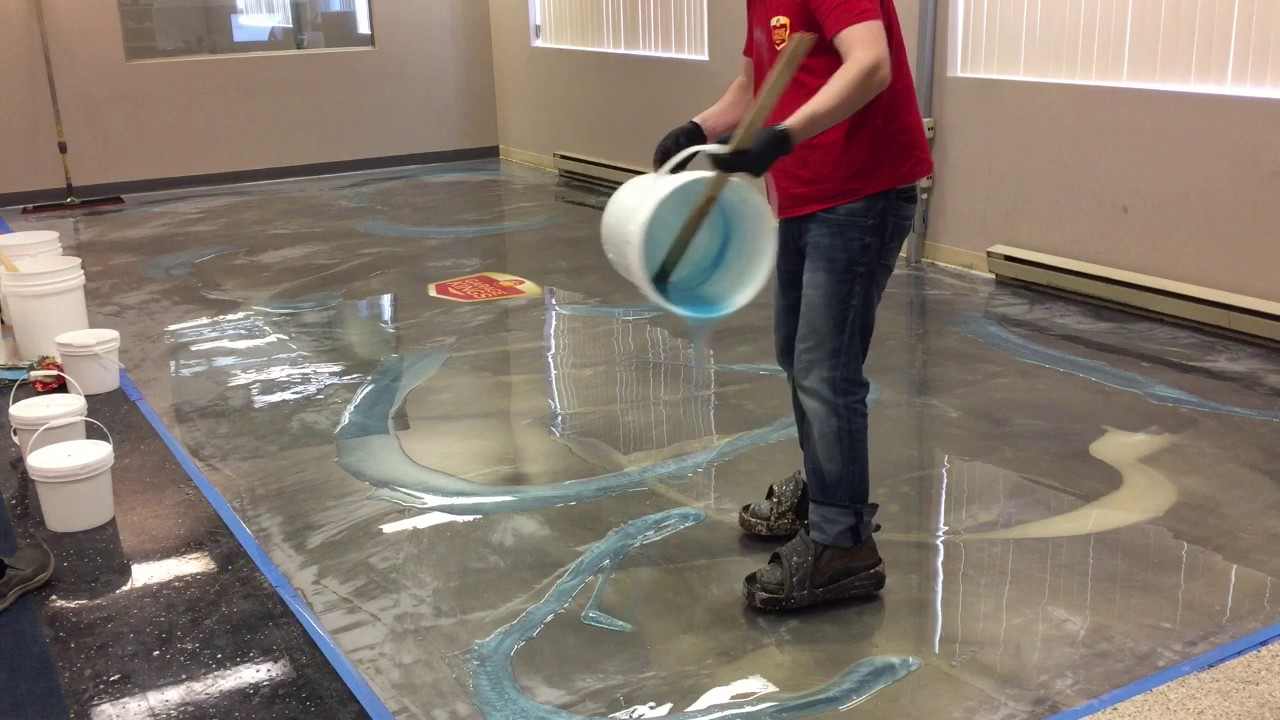You’ve just spilled a stubborn stain on your vinyl flooring, and you’re desperately searching for a solution. Mineral spirits, a common solvent found in most garages, might seem like a tempting option. But before you reach for that bottle, there’s a critical question to consider: is mineral spirits safe for vinyl flooring?

Image: sciencesensei.com
Vinyl flooring is known for its durability, affordability, and versatility. It’s a popular choice for kitchens, bathrooms, and even living rooms. However, using harsh chemicals like mineral spirits can have unintended consequences on its appearance and longevity. In this article, we’ll dive deep into the potential risks and benefits of using mineral spirits on vinyl flooring, exploring its impact on the material, offering alternative solutions, and providing essential tips for maintaining your vinyl floors.
Why is Mineral Spirits a Controversial Choice?
Mineral spirits, also known as white spirits or petroleum spirits, are a highly flammable hydrocarbon solvent. While they’re effective at removing grease, oil, paint, and other stubborn stains, their strong solvent properties can be detrimental to certain materials.
Vinyl flooring, with its flexible PVC base and protective layers, can be vulnerable to the aggressive effects of mineral spirits. The solvent’s ability to dissolve certain substances can also strip away the protective coatings, leaving your flooring vulnerable to scratches, fading, and even damage to the underlying material.
The Risks of Using Mineral Spirits on Vinyl Flooring
The potential consequences of using mineral spirits on vinyl flooring are numerous, and these risks should be carefully considered before using the solvent.
1. Damage to the Protective Coating:
Most vinyl floors have a protective layer, often a clear sealant, applied over the PVC base. This layer shields the flooring from scratches, stains, and wear and tear. Mineral spirits, being a powerful solvent, can dissolve this protective coating, making the floor more susceptible to damage.

Image: buildingandinteriors.com
2. Color Fading and Discoloration:
The pigments that give vinyl flooring its color can be affected by the strong solvent action of mineral spirits. The solvent can strip away the color, leading to uneven fading or discoloration of the floor, resulting in an unsightly appearance.
3. Surface Damage and Scratches:
Mineral spirits can make the vinyl floor surface more vulnerable to scratches by weakening the protective coating. This can be particularly noticeable in high-traffic areas, leading to unsightly scuff marks and scratches.
4. Potential for Chemical Reactions:
Certain types of vinyl flooring may contain additives or coatings that react negatively with mineral spirits. This can cause discoloration, warping, or even the release of harmful fumes, posing a health hazard.
Alternative Cleaning Solutions for Vinyl Flooring
Thankfully, there are many safer and more effective alternatives to mineral spirits for cleaning vinyl flooring. These methods are gentler on the material, less likely to cause damage, and just as effective in removing stains.
1. Mild Soap and Water:
For most spills and stains, a simple mixture of mild dish soap and warm water works wonders. Wet a soft cloth or sponge in the solution, gently scrub the stain, and rinse thoroughly with clean water. This method is safe for most vinyl flooring types.
2. Baking Soda Paste:
For tougher stains, baking soda paste can be a natural and effective solution. Combine baking soda with a small amount of water to create a thick paste. Apply the paste to the stain, let it sit for a few minutes, then scrub gently with a damp cloth. Rinse thoroughly with water.
3. Vinegar Solution:
White vinegar, diluted with water, is a safe and effective cleaner for vinyl flooring. Mix equal parts white vinegar and water in a spray bottle. Spray the solution onto the stain, let it sit for a few minutes, then wipe clean with a damp cloth.
4. Commercial Vinyl Floor Cleaners:
Several commercial vinyl floor cleaners are available in the market that are specially formulated to clean and protect vinyl flooring without damaging the finish. Look for products designed for vinyl floors and follow the manufacturer’s instructions carefully.
Tips for Preventing Stains and Maintaining Vinyl Flooring
Preventing stains and maintaining your vinyl flooring is key to preserving its beauty and longevity. Here are some essential tips:
1. Act Quickly:
The sooner you address spills and stains, the easier they are to remove. Wipe up spills immediately to prevent them from setting in and becoming more difficult to remove.
2. Use Floor Mats:
Place floor mats at entryways to trap dirt and grime from shoes, reducing the amount of debris that can scratch and stain the floor.
3. Regular Cleaning:
Regularly sweep or vacuum your vinyl floors to remove loose dirt and debris. Mop the floor with a mild cleaner at least once a week to keep it clean and free of grime.
4. Avoid Harsh Chemicals:
Avoid using harsh chemicals like bleach, ammonia, and mineral spirits on vinyl flooring. These chemicals can damage the surface and shorten the lifespan of your flooring.
5. Protect Your Floor:
Use furniture pads or protective coverings under heavy furniture to prevent scratches and dents. Consider using rugs in high-traffic areas to reduce wear and tear on the floor surface.
Can I Use Mineral Spirits On Vinyl Flooring
Conclusion
While mineral spirits might seem like a tempting solution for stubborn stains on your vinyl flooring, it’s essential to understand the potential risks involved. The strong solvent properties of mineral spirits can damage the protective coating, fade the color, and even cause damage to the underlying PVC material, ultimately shortening the life of your flooring. By using safer and more effective alternatives, such as mild soap and water, baking soda paste, or a vinegar solution, you can effectively clean your vinyl flooring without compromising its beauty and durability. Remember, the key to maintaining the longevity of your vinyl flooring lies in regular cleaning, preventive measures, and the use of appropriate cleaning solutions designed specifically for vinyl surfaces.

:max_bytes(150000):strip_icc()/OrangeGloEverydayHardwoodFloorCleaner22oz-5a95a4dd04d1cf0037cbd59c.jpeg?w=740&resize=740,414&ssl=1)




